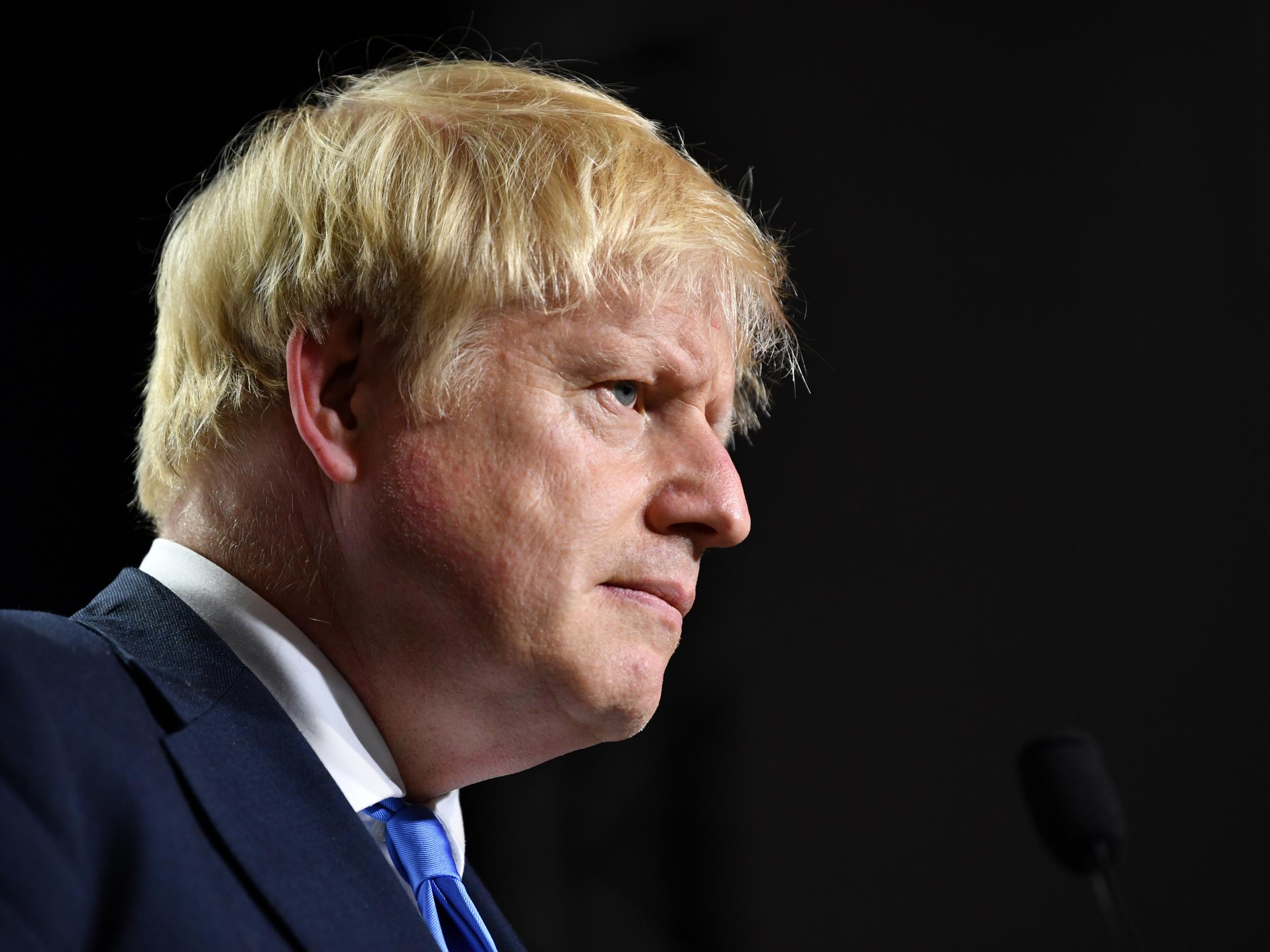Boris Johnson’s attempt to override democracy must be defeated
The best rebuke to the prime minister’s underhand manoeuvre would be to ensure that he does not succeed in taking Britain out of the European Union without a deal

The prime minister’s suspension of parliament for five weeks in the middle of the Brexit crisis is devious and undemocratic. For Boris Johnson to pretend that this is a normal procedure, and that it has nothing to do with our planned departure from the European Union, is disingenuous.
There is no question that his motive is to try to frustrate the majority in the House of Commons that is opposed to leaving the EU without agreement. The best rebuke to Mr Johnson’s underhand manoeuvre would be to ensure that he does not succeed.
We should be grateful for small mercies, we suppose, in that Mr Johnson is not attempting what had been widely feared – namely to suspend parliament altogether until after the end of October.
That had been suggested by some Brexit extremists as a way to ensure that Britain would leave the EU without a deal, by preventing parliament having any further say in the matter. That really would have been a constitutional outrage, and it would have provoked such a reaction that no prime minister could have survived it.
As it is, Mr Johnson’s manipulation of the parliamentary timetable, while it is reprehensible, may paradoxically strengthen the hand of those who want to avoid a no-deal Brexit. It should concentrate minds and force MPs to organise themselves quickly to prevent an outcome that would do serious damage to the British economy, and to the wider national interest.
MPs need to act as soon as parliament meets on Tuesday to start the process of passing legislation to block no deal. They may not have the time or the votes to take a bill through all its stages before parliament rises again the following week, but they can put the machinery in place for when parliament returns in October.
When the leaders of opposition parties met in Jeremy Corbyn’s office on Tuesday, they rightly agreed that they should focus their efforts on passing a law to prevent no deal, while holding the threat of a vote of no confidence in reserve as a last resort.
That remains the best strategy, but both parts of the plan need to be robust and ready to go by the time of the European Council of 17-18 October. If by then Britain appears to be heading towards a no-deal departure, those MPs who represent the majority in parliament and the majority among the people – who are opposed to such a disastrous outcome – must be ready to act in the national interest.
The Independent will continue to argue that the question of our EU membership must go back to the people, preferably in a Final Say referendum. But between now and October the only thing that matters is to stop a disastrous no-deal exit.
At least the MPs who want to defend the national interest now know what they have to do, and what they are up against.
Join our commenting forum
Join thought-provoking conversations, follow other Independent readers and see their replies
Comments